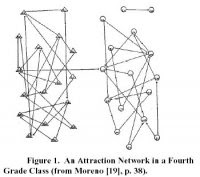
I’ve just returned from a training on Systemic Constellation Work and I’m truly inspired – not only by the method but the opportunity to meet several helping professionals offering leading-edge healing and change.
Systemic Constellation Work – sometimes called Systemic Family Constellation Work – is a trans-generational healing process developed by Bert Hellinger, a German psychotherapist and former missionary in photo above, about 20-plus years ago and has been spreading rapidly throughout Europe and is gradually coming to the United States.
I am completely enchanted with this approach, which I have been studying and reading about for more than two years – more in depth recently – and I have begun to integrate its principles into my work with psychodrama and the creative arts therapies.
It has a spiritual approach – with lots of talk about the “soul” of a family; Hellinger calls this the “greater force.” Basically, Systemic Constellation Work says that we are connected to our ancestors by an invisible energetic network and that we may carry their pain and difficulties as a way of staying energetically connected to the larger family soul. When we are able to address and heal these energetic entanglements, the ancestors are able to rest peacefully and we stay connected to our family members in more appropriate ways. And, our own lives change gradually for the better.
The training center where I study is the Hellinger Center of D.C., and the trainer is Heinz Stark, who is from Bremen, Germany, and one of Hellinger’s early protégées. You can go to Hellinger Center of D.C. and find several links to Hellinger, Stark and other important trainers as well as papers and lectures by many facilitators. I will warn you that a number of the principles is NOT related to the traditional mental health model – sometimes quite startling in its differences – but I can vouch for Constellation Work as an amazing method which has already made a difference in my life.
Constellation Work is an action method like psychodrama and is very similar in some ways -- yet very different. While it is rooted in the psychotherapeutic tradition, the method is distinguished from conventional psychotherapy in that the client hardly speaks and aim is to identify and release deep patterns embedded within the family system rather than to explore or process narrative, cognitive or emotional content.
Systemic Constellation Work – sometimes called Systemic Family Constellation Work – is a trans-generational healing process developed by Bert Hellinger, a German psychotherapist and former missionary in photo above, about 20-plus years ago and has been spreading rapidly throughout Europe and is gradually coming to the United States.
I am completely enchanted with this approach, which I have been studying and reading about for more than two years – more in depth recently – and I have begun to integrate its principles into my work with psychodrama and the creative arts therapies.
It has a spiritual approach – with lots of talk about the “soul” of a family; Hellinger calls this the “greater force.” Basically, Systemic Constellation Work says that we are connected to our ancestors by an invisible energetic network and that we may carry their pain and difficulties as a way of staying energetically connected to the larger family soul. When we are able to address and heal these energetic entanglements, the ancestors are able to rest peacefully and we stay connected to our family members in more appropriate ways. And, our own lives change gradually for the better.
The training center where I study is the Hellinger Center of D.C., and the trainer is Heinz Stark, who is from Bremen, Germany, and one of Hellinger’s early protégées. You can go to Hellinger Center of D.C. and find several links to Hellinger, Stark and other important trainers as well as papers and lectures by many facilitators. I will warn you that a number of the principles is NOT related to the traditional mental health model – sometimes quite startling in its differences – but I can vouch for Constellation Work as an amazing method which has already made a difference in my life.
Constellation Work is an action method like psychodrama and is very similar in some ways -- yet very different. While it is rooted in the psychotherapeutic tradition, the method is distinguished from conventional psychotherapy in that the client hardly speaks and aim is to identify and release deep patterns embedded within the family system rather than to explore or process narrative, cognitive or emotional content.
Here’s a link from a lecture from Bert Hellinger on peace of mind, soul and love; there are many more lectures at his Web site.
And there's more. Science is now offering studies that back up this approach of the contention that experiences are inherited. Here is the link to the BBC documentary, “The Ghost In Your Genes,” that actually offers fascinating proof about inheritance beyond hair and eye color and height. There very short version of this video on You Tube but does not go into the good details. The BCC version is 48 minutes, so you'll want to link to it when you have some time. I think it’s excellently done and is completely fascinating.
You can find several examples of actual Constellation sessions on YouTube – just go to to the site and search for “Systemic Family Constellation Work.” Most of them are in another language but you can get the idea of how it looks. I'll be co-presenting with my colleague Ron Anderson on "Couples Work With Systemic Constellation Work" at the annual conference of the American Society of Group Psychotherapy and Psychodrama later this week in St. Louis, Mo. Watch for our handouts to be posted at another time.
